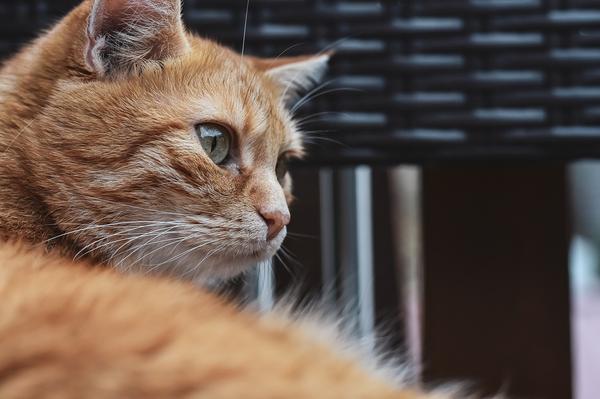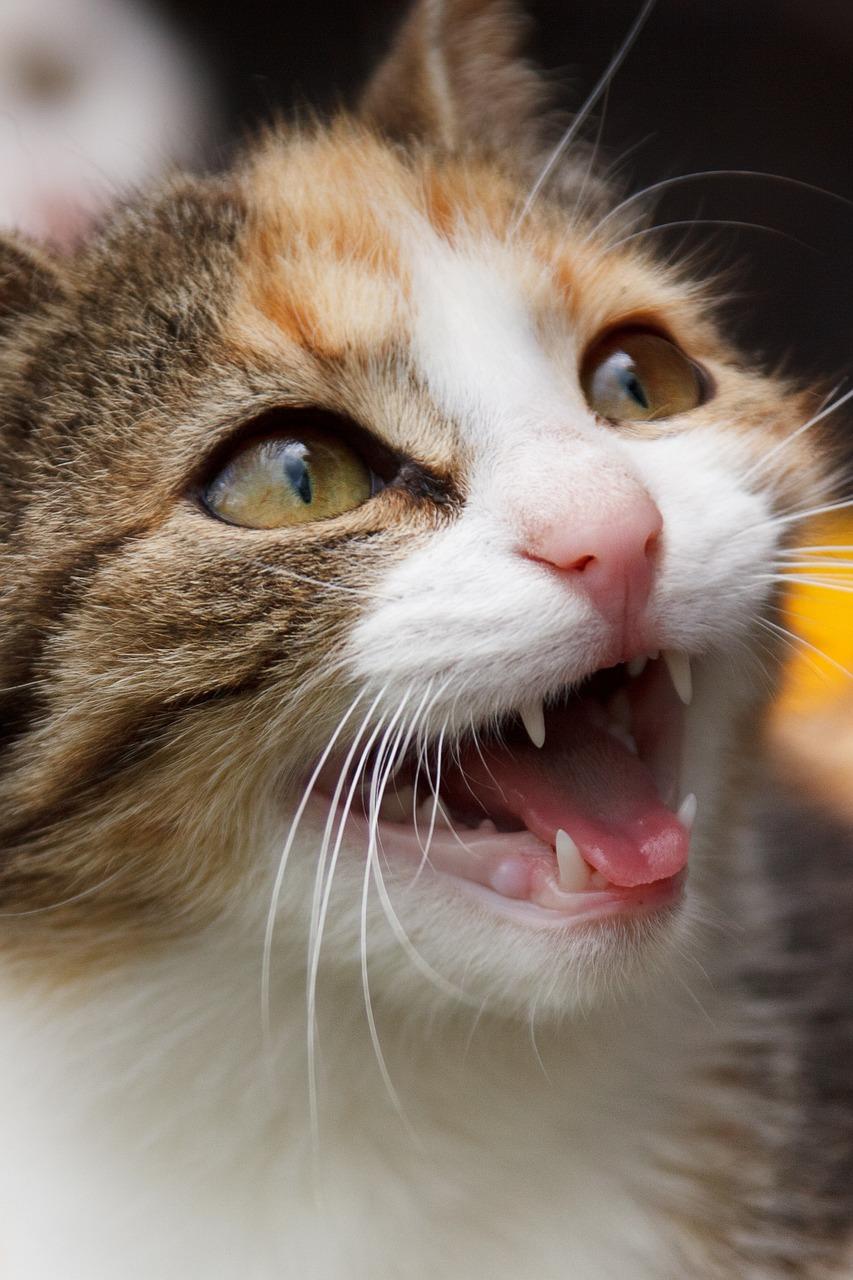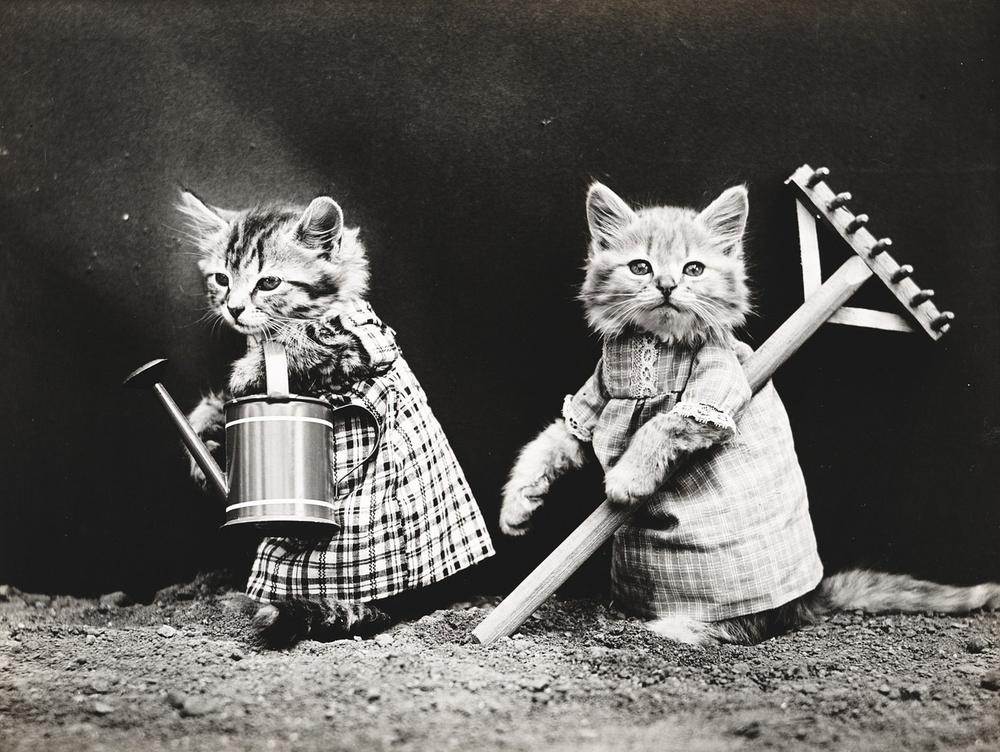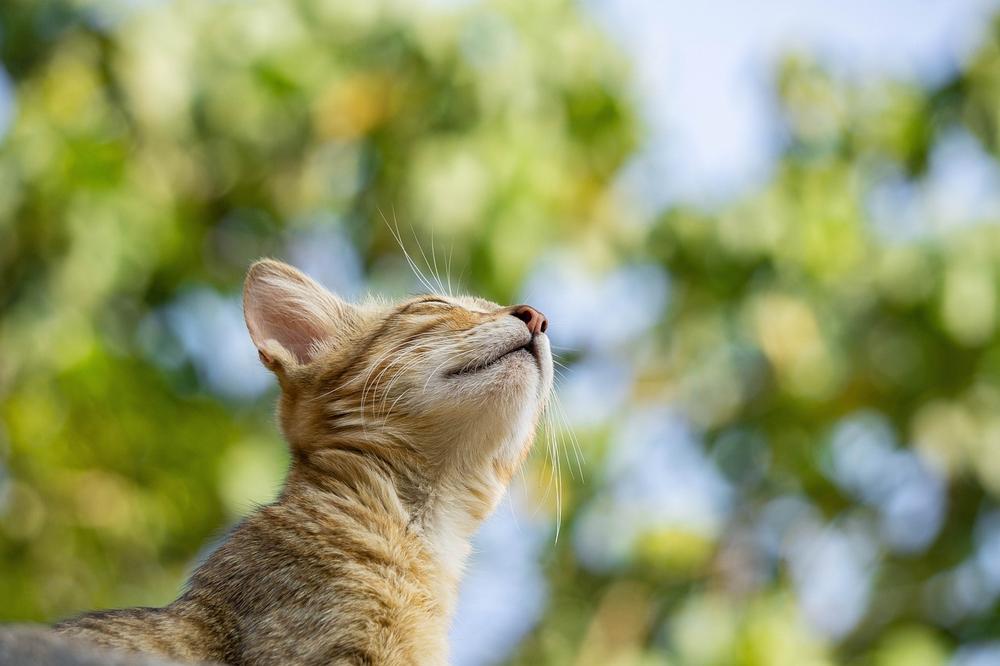Why Does Your Cat HUFF? Do YOU Need To Be Concerned?

Look, here's the deal:
You love your cat more than life itself.
They're your little feline angel, always by your side.😺
But lately, they've been huffing like a disgruntled dragon, and it's got you worried sick.
I mean, what if it's something serious?
What if they're secretly plotting against you?
The thought of your precious furball suffering breaks your heart.
But fear not, my friend.
Today's guide will finally put your mind at ease.
Buckle up and let's dive into the world of huffing cats.
Ready?
Let's go!
Why Does My Cat Huff at Me?
Cats huff to communicate their emotions, such as frustration, annoyance, or fear. It's their way of setting boundaries and asserting independence. Huffing may be accompanied by hissing and growling when they feel uncomfortable or invaded. Boredom can also lead to huffing. Watch for signs of distress.
Why is your cat huffing at you?
That's a good question, my friend.
Let's get right to it.
Cats huff for different reasons, all part of their natural and feline ways. It's how they set boundaries and assert their independence.
So, don't take it personally - they're simply expressing themselves!
You see, when your cat huffs, it's their way of communicating certain emotions like frustration, annoyance, or even fear.
If they can't have what they want or feel threatened, huff huff means, Back off, buddy!
Now, pay attention to their body language.
When your cat feels uncomfortable, tired, or invaded, hissing and growling often accompany the huffing.

Can you blame them?
Sometimes we all need a break.
But here's the thing...
Boredom can also be the culprit.
When cats get restless, they might attack furniture, leading to frustrated yowls followed by huffing.
Make sure they have enough toys and entertainment to keep them busy.
Huffing isn't always negative.
It could be your cat's way of warning or defending themselves, especially if they're unwell or need space.
Watch out for signs of distress.
So, now you know that when your feline friend huffs at you, it's just their unique way of expressing themselves in true cat fashion.
And now, let me delve deeper into the fascinating world of huffing cats, shedding light on this natural behavior and helping you understand their complex communication methods:
What Is Cat Huffing?
Cat huffing is a way for cats to communicate naturally.
Instead of getting aggressive, they huff to express their emotions without attacking physically.
What does huffing sound like?
Think of a quick exhale through the nose with their mouth closed.
It's not hissing or chuffing—it's different.
When your cat huffs, it usually means they're not happy about something.

Maybe you've been petting them too long or they just want some alone time.
They're politely asking you to back off.
But hissing is more serious and shows fear or threat.
Hissing means your cat feels threatened and wants you or another animal to stay away.
Understanding these vocalizations helps you connect better with your cat. Respect their huffing as their way of setting boundaries—and don't push them when they huff.
But here's the thing...
While huffing is a normal behavior, you still need to pay attention to certain factors.
After all, your cat's well-being should always be a top priority:
Is Huffing Normal?
Yes, huffing in cats is normal and often indicates calmness and happiness. It is similar to taking a deep breath or sighing, showing that they are at ease. However, continuous or repetitive huffing may indicate an underlying issue that requires veterinary attention.
Huffing in cats is completely normal, as long as it occurs in specific situations and context.
There's no need to worry if your cat huffs occasionally, as it typically signifies calmness and happiness. 😊
Some cats may huff when they're relaxed or content, similar to taking a deep breath or sighing.
This behavior indicates that they are at ease. You need to differentiate between huffing and other respiratory issues like wheezing or panting; cats don't huff due to breathing difficulties or overheating.
However, continuous or repetitive huffing could be a sign of an underlying problem that requires attention, so it's advisable to consult your vet in such cases.
Consider the frequency and duration of your cat's huffing episodes – if they occur too often or for prolonged periods, further investigation might be necessary.
Nonetheless, if you occasionally observe your feline friend huffing or letting out a small sigh, rest assured that they're likely just feeling immensely content.
Why Does My Cat Make Huffing Noises When Playing?
When your cat makes huffing noises during play, it means they're having a blast!
It's their way of saying, "I'm excited and totally into this!"
They huff because they're enjoying themselves and releasing pent-up energy.
So, don't worry...
It's a good thing.
But be aware of other possible reasons.
If they're playing intensely or being very active, huffing may be their way of catching their breath.
Even overweight cats can huff and puff after a vigorous workout. They just need a moment to recover and regulate their breathing.
Cats can also get tired and huff, just like us.
After a super active play session, they deserve some downtime too.
So, when you hear those adorable huffing sounds, know that your cat is showing excitement, taking a breather, or enjoying a well-deserved break after a fun playtime!
And there's one more fascinating behavior you may have noticed in your feline friend.
If you're curious why your cat wags her tail while purring and if it's a normal behavior, I have just the answer for you.
Discover the secrets behind this intriguing feline communication in my article Why Does My Cat Wag Her Tail While Purring.
Why Does My Cat Exhale Loudly?
Cats sometimes breathe loudly and snore while sleeping, but it's no big deal. When a cat breathes out loudly or snores occasionally, it usually means they are deeply relaxed and comfortable in their surroundings.
These adorable creatures use these sounds to show that they're feeling safe and content, so there's nothing for you to fret about.
It's all part of their way of unwinding and letting go of any worries.
When your feline friend exhales or snores during slumber, it's simply a sign that they're enjoying life and feeling mighty cozy.
What Does It Mean When a Cat Snorts at You?
When a cat snorts at you, it can indicate various emotions. Growling or hissing while snorting suggests aggression or discomfort, requiring space and avoiding conflicts. However, snorting alone can be a sign of happiness, showing contentment when you're around. Pay attention to their sounds for better understanding and potential health issues.
When your cat snorts at you, it can mean a few different things.
First and foremost:
If I notice that my cat is growling or hissing while snorting, that's not a good sign.
It shows that something is bothering them, and they may even be feeling aggressive.
In these situations, I know it's best to give them their space and avoid any potential conflicts.
On the flip side, I've learned that snorting in cats can also indicate happiness.
Yes, it might seem strange, but my cat can actually show their joy by making this amusing noise. It's like their way of telling me, "I'm content when you're around."
However, if I do hear growling or hissing accompanied by snorting, it's likely that there's something irritating my cat's nose.
It could be as simple as an itch or as serious as a sinus infection or virus.
By paying close attention to my cat's sounds, I can gain a better understanding of their mood and potentially identify any underlying health issues.
This knowledge not only helps me meet their needs, but it also strengthens the bond between us.
Remember, communication is essential in any relationship! 😺
But what if your cat's huffing goes beyond a simple snort?
If you notice concerning symptoms like heavy breathing or persistent coughing, you should understand the potential medical causes behind these episodes.
Let me guide you through some common conditions and behaviors that might be affecting your furry friend...
When Should I Be Concerned About My Cat Huffing?

When your cat huffs, there are a few things you should remember:
- Huffing could be due to tiredness or an underlying respiratory issue.
- If your cat is huffing and also showing signs like heavy breathing, persistent coughing, wheezing, or panting, it's better to seek veterinary help because it might be a serious medical problem. 😿
- Cats can huff for various reasons including respiratory problems, feline asthma, pneumonia, heartworm fever, congestive heart failure, upper respiratory infections, allergies, fear, anxiety, or boredom.
- If your cat huffs along with coughing, wheezing, or panting, it's best to consult a vet.
- Though huffing is usually normal, keep an eye out for other signs of irritation, especially if it's their first time puffing.
- If your cat starts snoring or having difficulty breathing while awake, it could indicate a respiratory issue which requires veterinary evaluation.
- Continuous loud huffing, repeated huffing, or difficulty breathing is not typical and needs veterinary attention.
- Stress can trigger huffing in cats, so establishing a healthy routine and using training techniques with patience and consistency can help manage and address this behavior.
Ensuring your cat's well-being entails monitoring their breathing patterns and promptly seeking veterinary assistance if necessary.
Understanding Cat Huffing: What You Need to Know
Key Takeaways:
- Cats huff to communicate their emotions, desires, and needs.
- Huffing can indicate frustration, annoyance, fear, tiredness, or the need for attention.
- It is often accompanied by other body language like hissing and growling.
- Cats do not hold grudges but can form lasting memories.
- Boredom can contribute to huffing and other restless behaviors.
- Huffing can be caused by inability to reach something, tiredness, or medical conditions.
- Cats may huff when toys roll under furniture or when they feel annoyed.
- Huffing can serve as a warning or defense mechanism.
- It may also be exhibited when cats are unwell or need personal space.
- Huffing is a vocalization made by exhaling air through the nose.
- Huffs express displeasure and are different from hissing.
- Huffing can indicate calmness, happiness, or relaxation.
- Huffing during play or after physical exertion is normal.
- Cats may snort to communicate happiness, irritation, or when there is something scratching their nose.
- Paying attention to vocalizations helps understand a cat's mood and identify health issues.
And that wraps up today's article.
If you wish to read more of my useful articles, I recommend you check out some of these: My Cat Keeps Pooping on the Floor in the Same Spot, Why Does My Cat Howl Before After Using the Litter Box, and Why Cat Keeps Meowing at Door
Talk soon,
-Sarah Davis